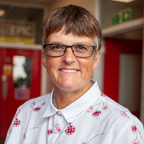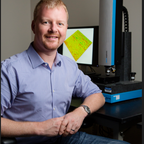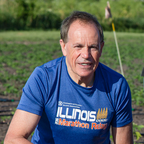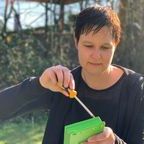Invited Speakers





Dr. Doug Cobos
Senior Research Scientist and the Vice President of Research and Development, METER Group
Bernard Genty

David Kramer

Gary Lanigan





Dr. Kathy Steppe
Sponsors:






Senior Research Scientist and the Vice President of Research and Development, METER Group







Sponsors:


Wageningen University
Liana is an Assistant Professor at Wageningen University (NL) within the Horticulture and Product Physiology group. Her work aims to understand how plants respond to fluctuating light environments through the lens of photosynthesis. Additionally, her works examines how the response of photosynthesis to changes in light is also affected by other abiotic factors, such as [CO2], heat, or water availability. Liana is also very interested in connecting plant physiology research to application within pre-breeding and breeding programs, including through the characterization of diverse crop germplasm. Prior to joining Wageningen in 2024, she worked as a researcher at the Plant Research Laboratory at Michigan State University (USA) and as part of the Wheat Physiology group at CIMMYT (Mexico).

University of Illinois Urbana–Champaign
Carl Bernacchi is a research scientist with the U.S. Department of Agriculture and professor in the departments of Plant Biology and Crop Sciences at the University of Illinois Urbana–Champaign. His research addresses key issues related to ecological and environmental plant physiology, with a specific focus on the environmental impacts of land use change and responses of vegetation to climate change over a wide range of spatial and temporal scales. His research utilizes a range of techniques includes gas exchange, mechanistic and biophysical modelling, and remote/proximal sensing of carbon, water, and energy dynamics ranging from plant organ to regional scales. His teaching focuses on environmental physiology and photosynthesis.

Washington State University
Dr. Colin Campbell is a senior research scientist with METER Group and serves as the President and CEO. He is also an adjunct professor with Washington State University where he teaches a class in environmental biophysics. Dr. Campbell has spent more than 25 years developing sensors and instruments for the soil-plant-atmosphere continuum. He also is active with colleagues around the world conducting experiments to solve problems related to climate change in native and managed ecosystems and spends considerable time disseminating this research through in-person and online seminars. One of the highlights of his career was working together with Decagon (METER) colleagues to design and build the Thermal and Electrical Conductivity Probe that measured thermal properties on Mars as a part of NASA’s 2007 Phoenix Mission. His latest work is focused on combining remote sensing and in situ weather and soil data to provide more complete picture of crop water availability. He is a fellow of the Soil Science Society of America and American Society of Agronomy.

University of Essex
Dr. Amanda Cavanagh’s research interest in plant environmental physiology covers molecular biology, biochemistry, and leaf physiology. Amanda completed her PhD at the University of New Brunswick in Canada, where she worked on Rubisco - the enzyme that feeds the world. During her postdoc at the University of Illinois at Urbana-Champaign in the USA, she tested synthetic biology pathways that improve photosynthetic performance in crops under field and environmental stress conditions. She is currently a lecturer at the University of Essex, where her lab explores leaf and plant-level responses to abiotic stress under field and laboratory conditions, and is developing strategies to optimize crop performance in response to the changing climate.

Senior Research Scientist and the Vice President of Research and Development, METER Group
Dr. Doug Cobos is a Senior Research Scientist and the Vice President of Research and Development at METER Group. He also holds an adjunct appointment in the Department of Crop and Soil Sciences at Washington State University where he co-teaches Environmental Biophysics. Doug’s advanced degrees are from Texas A&M and the University of Minnesota in Soil Science. Doug was the Lead Engineer for the Thermal and Electrical Conductivity Probe (TECP) that was designed by Decagon and flew to Mars aboard NASA’s 2008 Phoenix Scout Lander. His current research is focused on instrumentation development for use in soil, plant, and atmospheric research.

University of Georgia
Dr. Dan Johnson is an Associate Professor at the Warnell School of Forestry and Natural Resources at the University of Georgia. Dr. Johnson has over 20 years of experience studying plant responses to stress under a changing climate. His most recent research has focused on plant water transport processes, particularly as they relate to drought and fire. He is also particularly interested in the physiology and ecology of conifers.
Gary Lanigan is a Principal Researcher Officer at Teagasc. He leads the Carbon Research Pillar group at Teagasc Johnstown Castle with the primary research focus of developing GHG and ammonia abatement strategies for agriculture. He leads the National Agricultural Soil Carbon Observatory in Ireland, a network of 30 CO2/CH4/N2O flux monitoring sites consisting of eddy covariance towers and soil GHG chambers . His main focus is measurement and modelling of ammonia, nitrous oxide emissions and carbon sequestration and the quantification of management strategies to reduce emissions on peat soils and enhance sequestration on mineral soils. In particular, his research has focussed on combining trace gas measurements with isotope techniques in order to partition ecosystem C and N cycling.
Internationally, he has worked on a range of EU funded competitive research funded projects and has published over 150 papers on greenhouse gas research. He was a contributing Author on the IPCC Report on Climate, Land-Use and Food Security and he is an adjunct professor at University of Galway and Trinity College Dublin.

Professor, University of Illinois
Professor Tracy Lawson is a professor in the Plant Productivity group and Director of Plant Phenotyping at Essex, with over 25 years’ experience in photosynthesis research. Her research focuses on the stomatal control of atmospheric gas entry into the leaf, associated water loss and the mechanisms that regulate this process. Recent research has paid particular attention to stomatal kinetics and the impact of dynamic environments on both photosynthesis and stomatal behaviour. Tracy’s work also concentrates on phenotyping including chlorophyll fluorescence techniques (for quantifying light use and photosynthetic efficiency) and thermal imaging (for measuring stomatal responses and kinetics). Lawson’s lab developed the first imaging system for screening plant water-use-efficiency (McAusland et al., 2013).

University of Illinois at Urbana-Champaign
The Leakey research group at the University of Illinois aims to help improve the productivity, resource use efficiency and stress resilience of food and fuel crops. To do this we integrate genetic, molecular, biochemical, physiological, agronomic, imaging and machine learning tools. Our current focus is to holistically understand the mechanisms controlling stomata, rooting and water use efficiency.
Dr Leakey received his B.Sc. in Plant Sciences in 1998 and his Ph.D. in Tropical Tree Physiology and Ecology in 2003, both from the University of Sheffield, UK. He moved to the University of Illinois at Urbana-Champaign, USA as a Fulbright Scholar in 2002. Staying at Illinois he was a post-doctoral scientist in the Department of Plant Biology and then Research Fellow at the Institute for Genomic Biology, before joining the faculty as an Assistant Professor in 2007. He was promoted to Associate Professor in 2013 and Professor in 2018. He has received the Calvin-Benson Prize for excellence in early-career research on photosynthesis and been elected as a Fellow of the American Association for the Advancement of Science. He is currently the Director of the Center for Advanced Bioenergy and Bioproducts Innovation (CABBI) and the Head of the Department of Plant Biology.
Lab webpage: http://www.life.illinois.edu/leakey/

University of Illinois at Urbana-Champaign
Abstract:
“Photosynthesis in the SEB yesterday, today and tomorrow - from molecular to global sustainability solutions”
Photosynthesis is the most important process on the planet. Indeed, it has made much of what the planet is today. Directly or indirectly it provides all of our food, and fuels almost all ecosystems. The SEB has been party to much of the discovery of how it works and advances in its measurement and analysis from molecules to landscapes. Presidents, Medalists, Woolhouse Lecturers and PEPG have been and are major contributors, as I will illustrate. Discovery and technical progress has expanded in two directions. 1) Growth in food demand is outstripping growth in production, reversing this situation is critical to avoiding increasing starvation and expansion of agriculture into tropical forests. For our major crops improving photosynthesis appears the remaining option for increasing genetic yield potential. Elucidation of the underlying gene expression networks and metabolic flux analysis are guiding engineering, including editing, of amounts and forms of key proteins to improve photosynthetic efficiency under global change. This has already led to on farm demonstrations of increased yield and promises many more. 2) The need to understand sinks for CO2 has motivated improved measurement and analysis of photosynthesis at scale. This is critical to identifying sinks and the engineering of managed systems for improved sequestration. Afforestation and planting of other sustainable productive perennials are providing means to offset emissions. These though could be greatly enhanced by engineering and breeding increased photosynthetic efficiency, especially if combined with combustion carbon capture and storage. Going forward photosynthesis may never have been more important.
Biography:
Steve Long holds the Ikenberry University Chair of Plant Biology at the University of Illinois. He is a Fellow of the Royal Society and a Member of the US National Academy of Sciences. His photosynthesis research spans from carbon metabolism to field crops; with a focus on breeding and bioengineering for sustainable yield increases under global change. Last year his teams in silico and subsequent in vivo engineering of photosynthesis led to a more than 25% increase in soybean yields in replicated field trials. He is Founding and Chief Editor of the journals Global Change Biology and Global Change Biology-Bioenergy, and has given briefings on global food security and on bioenergy to the President at the White House, the Vatican and Bill Gates. He first joined the SEB as an undergraduate, is a past convener of Plant Environmental Physiology Group and session organizer, and is a member of the Plant Section Committee. He was the 2008 Woolhouse Lecturer.

University of Western Australia
Talk title: Scaling plant processes from enzymes to ecosystems
Dr. Caitlin Moore is interested in research that brings together measurement and modelling techniques to observe how plant processes, from enzymes to ecosystems, change over time and space. She is a Research Fellow at the University of Western Australia (2020-current), where she is combining her interests in native and agricultural ecosystem processes to understand how these systems in Australia respond to climate variability over time and space.
Caitlin established her foundations in this field during her PhD at Monash University in Australia (2012-2017), where she quantified tropical savanna tree and grass productivity and phenology. She expanded her skills through her Postdoctoral Researcher appointment at the University of Illinois Urbana-Champaign (UIUC, 2017-2020) in the USA. There she worked in the Center for Advanced Bioenergy and Bioproducts Innovation (CABBI) on quantifying the sustainability of bioenergy crops grown in the United States, and on the Water Efficient Sorghum Technologies (WEST) project to build knowledge about agricultural systems and how to measure them in a high-throughput way. She also collaborated on projects aimed at improving food security in the coming century, such as the Realizing Increased Photosynthetic Efficiency (RIPE) project.

Kathy Steppe is Bio-engineer, Doctor in Applied Biological Sciences and Full Professor at Ghent University. Since 2008, she manages and guides the Laboratory of Plant Ecology at the Faculty of Bioscience Engineering (UGent), which is specialized in applied plant ecophysiology. Kathy uses an array of plant sensors and plant models, along with medical imaging techniques, to study the dynamic responses of trees and crops to their environment. Plant water relations and carbon metabolism are jointly investigated to better understand the dynamic plant-environment interplay, with a special emphasis on drought in a changing climate. In her papers, she reports on new discoveries and high-tech developments within the applied ecophysiological plant research.
